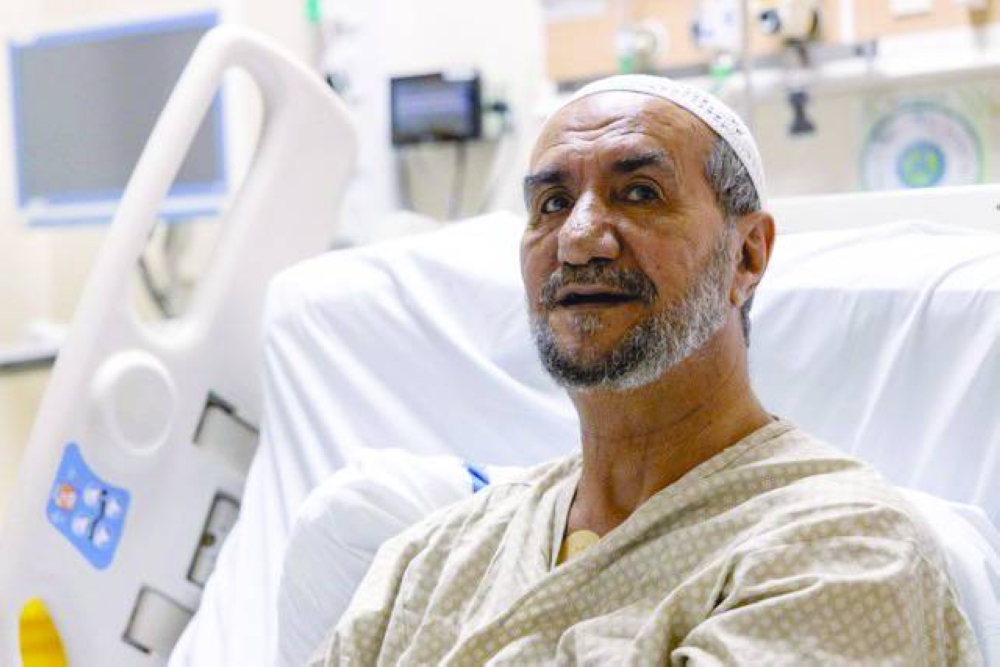The Ambulance Service team at Hamad Medical Corporation (HMC) and doctors from the HMC’s Heart Hospital helped save in record time the life of a Qatari who suffered from a sudden heart attack.
An ambulance unit reached the patient's location within a record time of eight minutes from receiving the emergency call, a statement said Sunday.
The patient, Ali al-Rahma al-Marri, had suffered a medical emergency while at Al-Rayyan TV last Thursday, which required calling the ambulance service.
While the ambulance team was managing the situation, the patient – who was experiencing chest pains - went into a state of unconsciousness and his breathing and heartbeat stopped.
Three electrical shocks were administered to safely revive the pulse.
The patient was then given standard treatments for such emergency cases and promptly transferred to the Heart Hospital's Emergency Department.
Ali Darwish, assistant executive director of the Ambulance Service, said that these are the standard procedures for such cases, and emphasised the importance of rapid response to emergencies.
“Assessment and care for patients with critical heart conditions must be carried out swiftly by the ambulance team,” he said. “Our paramedics receive high-level professional training to ensure excellent care for patients with cardiac emergencies.”
Darwish also noted that the care for patients with cardiac emergencies usually include cardiopulmonary resuscitation and the use of defibrillators.
Additionally, electrocardiography is conducted in the ambulance for critical cases and the results are simultaneously sent to the emergency department at the Heart Hospital for assessment and immediate treatment upon the patient's arrival at the hospital.
“Upon his arrival at the Heart Hospital’s Emergency Department, the patient immediately underwent a cardiac catheterisation, a procedure performed for critical and urgent cases that require rapid intervention,” Heart Hospital chief executive and medical director Dr Nidal Asaad said. “Our expert teams are equipped with the necessary technologies and facilities and are always on standby to handle complex cases transferred by Ambulance Service according to the highest international standards.”
“The ambulance team sends the ECG data to the Heart Hospital, and once the diagnosis is confirmed, the cardiac catheterisation team is activated, and the catheterisation room is prepared to receive the patient immediately upon arrival,” he said. “In some of the most complex cases, the catheterisation, intensive care, anaesthesia, and cardiac surgery teams are all ready and awaiting the patient before his arrival.”
“The average time from the arrival of patients with a heart attack to the opening of the blocked artery through catheterisation is approximately 46 minutes,” Dr Assad continued. “In this patient's case, the artery was opened within 25 minutes of his arrival.”
“Last year, our teams performed approximately 1100 emergency cardiac catheterisations for critical and urgent cases,” he added.
Al-Marri's condition has stabilised, and he continues to be monitored at the Heart Hospital under the supervision of a specialised medical team, the statement added.

Ali al-Rahma al-Marri
